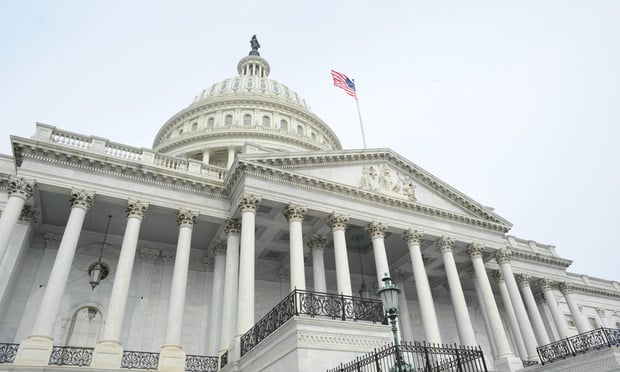 U.S. Capitol. Credit: Shutterstock
U.S. Capitol. Credit: Shutterstock
The Congressional Research Service has given members of Congress a guide to concerns about private equity firm involvement in health care.
The guide includes a list of some steps Congress could take to reduce the firms' influence over health care providers.
Recommended For You
The options suggested include:
- Lowering the size of private equity-related deals subject to antitrust review.
- Updating the Social Security Act to require hospitals that take money from Medicare or Medicaid to disclose more information about their ownership.
- Increase some health care organization owners' liability for liability under the federal False Claims Act or other legislation.
- Regulating private equity firms directly.
- Updating and broadening federal antitrust laws.
The Congressional Research Service is a nonpartisan arm of Congress that helps members of Congress understand the issues. It emphasizes that its reports are not part of the legislative process. But its reports could influence how lawmakers think about their options.
A private equity firm is a company that invests in holdings that are not registered for sale to the general investing public with the U.S. Securities and Exchange Commission. The investors in private equity fund are supposed to be institutions or sophisticated, high-net-worth individuals with a relatively high tolerance for investment risk.
Defenders contend that private equity firms can handle more uncertainty and longer investment time horizons than ordinary public shareholders generally can. Critics contend that private equity firms may be harder to track than stock companies.
For employers and their benefits advisors, new restrictions on private equity involvement in health care could help by blocking deals that drive up costs but could hurt by interfering with private equity-backed deals that have angered providers by increasing competition and pushing down the costs for some kinds of services.
The Congressional Research Service researchers acknowledge that some observers disagree with the current wave of attacks on private equity firm involvement in health care.
"Private equity representatives and other stakeholders argue that such efforts can improve both efficiency and patient care, and that private equity has been scapegoated for broader issues in the health care system," the researchers write.
© Touchpoint Markets, All Rights Reserved. Request academic re-use from www.copyright.com. All other uses, submit a request to [email protected]. For more inforrmation visit Asset & Logo Licensing.






